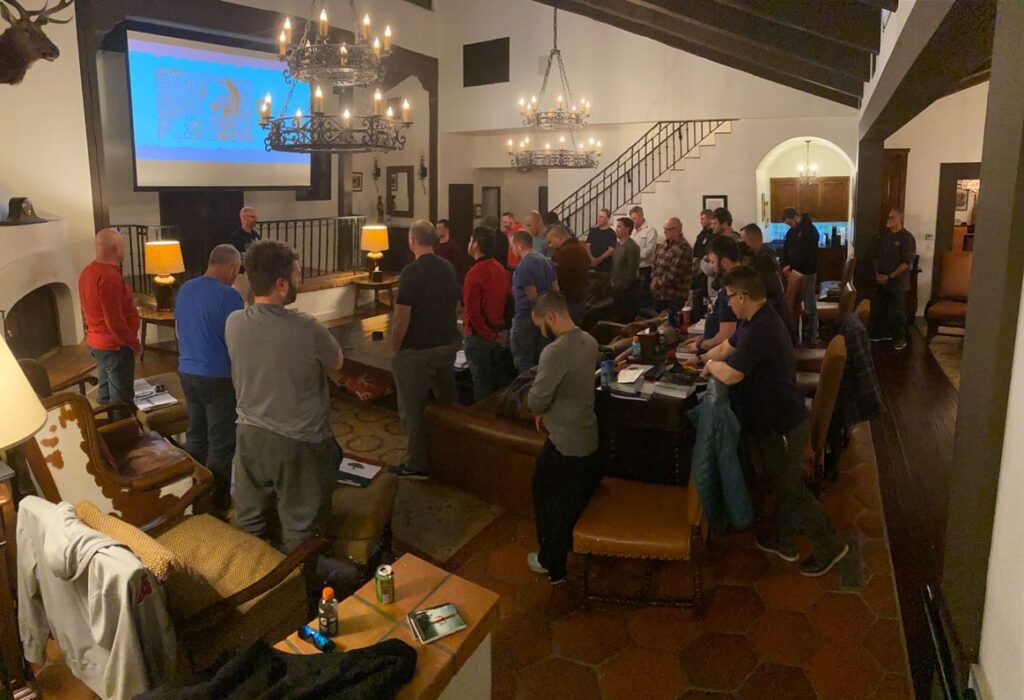By Luis Rivera
In the ancient Near East, a city without gates and walls was slim pickings for anyone who would seek to sack it. Similarly, a home without walls is easy prey for unsuspecting thieves. And a life created to glorify God without protection from the enemy will be open to the enemy’s attacks.
The book of Nehemiah is a historical account of how Nehemiah lead people to rebuild the walls of Jerusalem. Twenty years after King Solomon built the 1st Temple, he died in 931B.C. Israel’s twelve tribes split into two kingdoms: The northern kingdom, which was made up of 10 tribes, took on the name of Israel. And the southern kingdom, which was made up of two tribes, took on the name of Judah. Both kingdoms had a history of disobedience and idolatry, and God’s judgment fell on them. In 722 B.C., Assyria conquered the northern kingdom, then in 605 B.C. the southern kingdom was conquered by the Babylonians, and Solomon’s Temple was destroyed.
The Persian Empire rose to power, and they overthrew the Babylonians as the world superpower. The Jews were allowed to return to Jerusalem by the end of the 5th B.C. century. Then the second Temple was built in Jerusalem, but the walls of the city were compromised, and the city was vulnerable and open to attack. And this is the point in history where we find Nehemiah.
The book of Nehemiah begins with Nehemiah serving Artaxerxes, King of Persia, as his cupbearer. In the middle of the 4th century, B.C. Nehemiah learned the Jews that had returned from the Babylonian exile and were living in the city of Jerusalem with walls that were broken. After learning of his people in need, Nehemiah did two things. He prayed with fasting, and he trusted God. This was his prayer: “Remember the word that you commanded your servant, Moses, saying, ‘If you are unfaithful, I will scatter you among the peoples, but if you return to me and keep my commandments and do them, though your outcasts are in the uttermost parts of heaven, from there I will gather them and bring them to the place that I have chosen, to make my name dwell there.” Nehemiah 1:8-9. He prayed for four months. Nehemiah was petitioning God to do what was done for Israel in Egypt and gather his people to a place. After praying and fasting for four months, he approached King Artaxerxes and asked to return to Jerusalem to rebuild the wall. The King granted his request.
When Nehemiah arrived in Jerusalem, he toured the city walls to assess the damage. He faced tremendous opposition as he made plans and directed the people in rebuilding the city walls. He was mocked and threatened as he persisted. Nehemiah had opposition from legitimate enemies and opposition from the people he was leading. The people were at times discouraged and almost hopeless, but Nehemiah persisted. The Bible says that the threat was so great from outside the city he posted armed guards along the walls to protect the city until the building was done. Men were armed and ready to fight while they worked daily to build the wall.
These evil men that opposed Nehemiah even tried to get him killed by luring him into an ambush. And when that didn’t work, they tried to get him to enter the Temple unlawfully, which meant that he would succumb to God’s punishment.
It took Nehemiah 52 days to reinforce the gaps and rebuild the wall. He gathered his people together, he equipped them, and he led them in rebuilding the city walls of Jerusalem. After the wall was built, Nehemiah ensured that the people were read God’s Law, and they understood it. He wanted them to know what standards he and they would live by.
In summary, Nehemiah served King Artaxerxes loyally as cupbearer and learned about the Jew’s dire situation in Jerusalem. Nehemiah prayed and fasted to God for four months before petitioning the King to return to his home and reinforce Jerusalem’s city walls. Upon arrival into the city, he assessed the damage and got to work. In spite of opposition, he led his people in rebuilding the wall and succeeded.
Does any of this strike a chord in your life? Have the walls of protection and preservation around your home been compromised? Have they been destroyed by outside opposition? Or maybe, just maybe, you were the one that tore the walls down? Have you grown accustomed to living a life unprotected from the enemy? If so, what are you going to do about it?
Once Nehemiah learned how vulnerable Jerusalem was, the Bible says that his first course of action was to pray. He prayed and fasted for four months. He was given the strength and courage to petition the King and was granted his request to rebuild the wall.
As men and women of God, we can pray in the midst of our trials and circumstances. We can petition God for wisdom and understanding. James puts it like this, “Count it all joy, my brothers, when you meet trials of various kinds, for you know that the testing of your faith produces steadfastness. And let steadfastness have its full effect, that you may be perfect and complete, lacking in nothing. If any of you lacks wisdom, let him ask God, who gives generously to all without reproach, and it will be given him.” James 1:2-5 ESV. God gave hope and strength to Nehemiah to rebuild the walls around Jerusalem and reestablish his people. Nehemiah saw a problem, and God gave him a solution. But Nehemiah didn’t do it without opposition.

Will you follow Nehemiah’s lead? Will you pray. Will you teach your family to pray? Will you model the husband or wife you want your daughter or son to marry? Will you model the father or mother you want your son or daughter to be? And when opposition comes, will you continue to pray and seek wisdom?
Seek wisdom from God; He is generous to give it without reproach.






